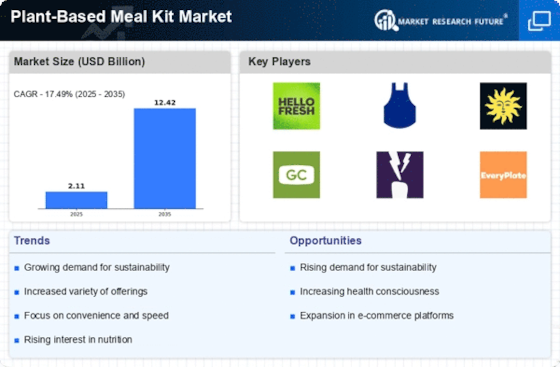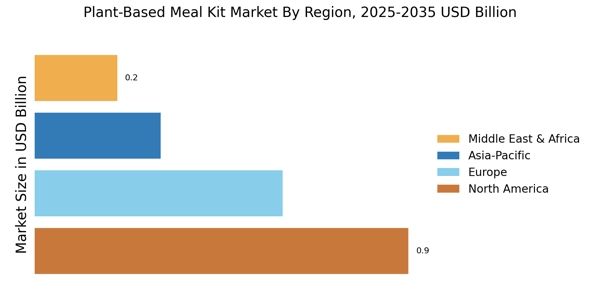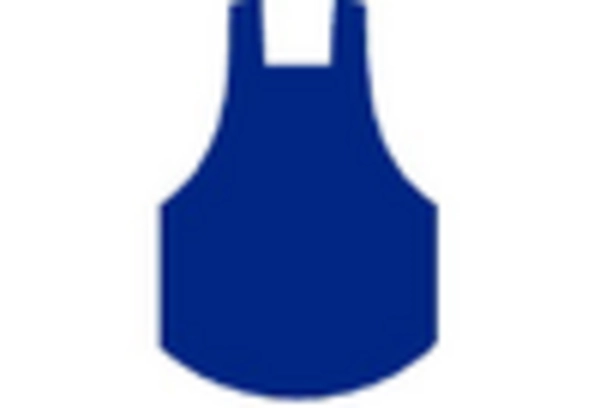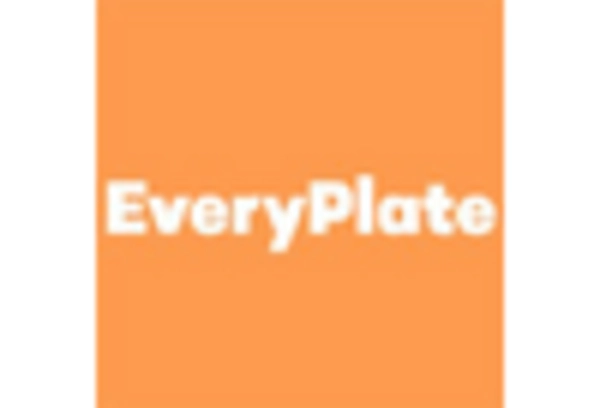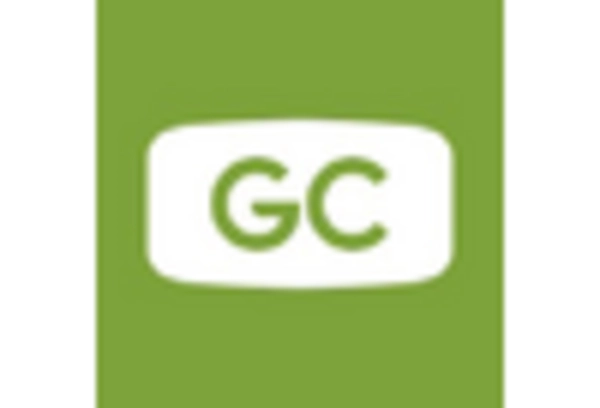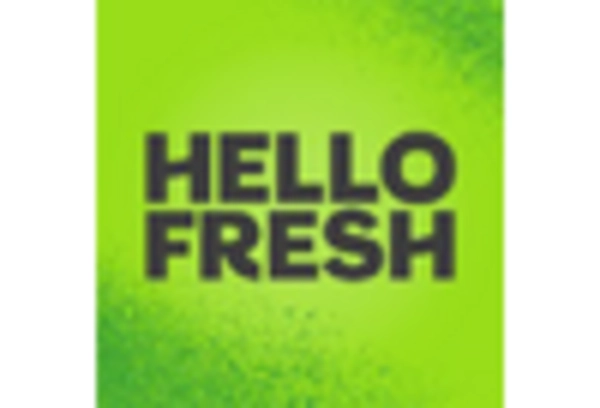Sustainability Focus
The increasing emphasis on sustainability appears to be a pivotal driver for the Plant-Based Meal Kit Market. Consumers are becoming more aware of the environmental impact of their food choices, leading to a surge in demand for plant-based options. According to recent data, the plant-based food sector has seen a growth rate of approximately 27% over the past few years, indicating a shift in consumer preferences. This trend is likely to continue as more individuals seek to reduce their carbon footprint and support eco-friendly practices. Meal kit companies are responding by sourcing ingredients from sustainable farms and utilizing eco-conscious packaging. This alignment with sustainability not only attracts environmentally conscious consumers but also enhances brand loyalty, thereby contributing to the overall growth of the Plant-Based Meal Kit Market.
Diverse Culinary Options
The increasing demand for diverse culinary options is emerging as a significant driver in the Plant-Based Meal Kit Market. Consumers are seeking variety in their meal choices, and meal kit providers are responding by offering a wide range of international cuisines and flavors. This diversification caters to the evolving palates of consumers who are eager to explore new tastes while adhering to plant-based diets. Market data suggests that meal kits featuring ethnic cuisines have gained popularity, with a notable increase in subscriptions for these offerings. By providing unique and exciting recipes, companies can attract a broader audience, including those who may not typically consider plant-based meals. This emphasis on culinary diversity not only enhances consumer satisfaction but also contributes to the overall expansion of the Plant-Based Meal Kit Market.
Technological Integration
Technological advancements are playing a crucial role in shaping the Plant-Based Meal Kit Market. The integration of technology in meal kit services enhances customer experience and operational efficiency. For instance, the use of mobile applications allows consumers to customize their meal plans, track nutritional information, and receive personalized recommendations. Data analytics is also being utilized to understand consumer preferences better, enabling companies to tailor their offerings accordingly. Furthermore, advancements in food preservation technology ensure that ingredients remain fresh for longer periods, thereby reducing food waste. This technological evolution not only streamlines operations but also attracts tech-savvy consumers who value convenience and personalization. As a result, the Plant-Based Meal Kit Market is likely to witness sustained growth driven by these technological innovations.
Health-Conscious Offerings
The rising trend of health consciousness among consumers is significantly influencing the Plant-Based Meal Kit Market. As individuals become more informed about the health benefits associated with plant-based diets, there is a notable increase in the demand for meal kits that cater to this lifestyle. Research indicates that plant-based diets can reduce the risk of chronic diseases, which resonates with health-focused consumers. In fact, the market for plant-based foods is projected to reach a valuation of over 74 billion dollars by 2027, reflecting the growing inclination towards healthier eating habits. Meal kit providers are capitalizing on this trend by offering nutritionally balanced options that are rich in vitamins and minerals. This focus on health not only attracts a diverse consumer base but also positions the Plant-Based Meal Kit Market as a leader in promoting wellness.
Convenience and Time-Saving Solutions
The fast-paced lifestyle of modern consumers is driving the demand for convenience in the Plant-Based Meal Kit Market. As individuals juggle work, family, and personal commitments, the need for quick and easy meal solutions has become paramount. Meal kits offer a time-saving alternative by providing pre-portioned ingredients and step-by-step recipes, allowing consumers to prepare meals with minimal effort. Recent surveys indicate that a significant percentage of consumers prefer meal kits for their convenience, with many citing time savings as a primary reason for their choice. This trend is particularly appealing to busy professionals and families who seek to maintain a healthy diet without sacrificing time. Consequently, the Plant-Based Meal Kit Market is likely to thrive as it continues to cater to the convenience-seeking consumer.


